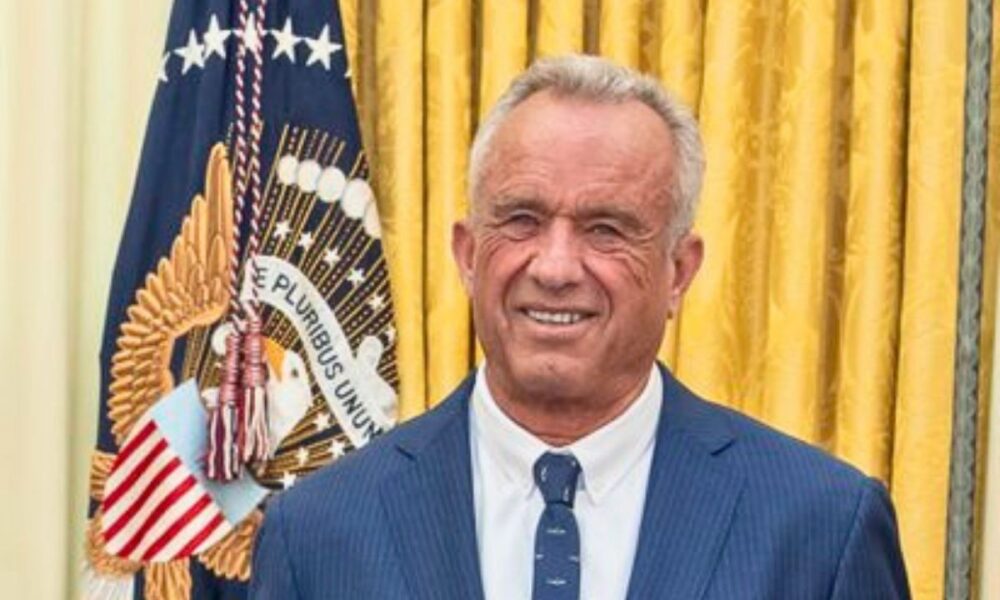Health and Human Services Secretary Robert F. Kennedy Jr. is facing backlash from key medical freedom allies, yet his agency insists that he is repairing trust in public health agencies before taking other actions.
In response to a request for comment from The Dallas Express, an HHS spokesperson defended Kennedy’s recent guidance changes regarding COVID-19 vaccines, emphasizing that the administration is restoring the “doctor-patient relationship” and prioritizing “gold-standard science.”
The spokesman said that under Kennedy’s leadership, prior CDC recommendations for healthy children under 18 and pregnant women had been removed from the federal immunization schedule—though the department still encourages personal consultation with a healthcare provider.
“Secretary Kennedy is pro-safety, pro-transparency, and pro-accountability,” an HHS press officer said in an emailed statement. “He has made it clear that vaccine guidance—especially regarding healthy children and pregnant women—must reflect the latest science, individual risk profiles, and uphold the right of informed consent.”
That response comes as Kennedy finds himself on the defensive following a scathing open letter sent June 4 co-authored by Dr. Mary Talley Bowden, Naomi Wolf, Shannon Joy, and Sasha Latypova — a group of health freedom activists aligned with the MAHA (Make America Healthy Again) movement, as previously reported by The Dallas Express.
The letter accused Kennedy of betraying the grassroots network that rallied behind him, charging that his approach to mRNA policy had softened since assuming leadership at HHS.
“We did not fight for you to be in positions of leadership so that our clearly stated policy goals would suffer a ‘bait and switch,’” the letter states, warning that the MAHA movement “can walk away” if its demands are not met. The group is calling for an outright federal ban on all mRNA vaccines, repealing the 2005 PREP Act (which provides liability protections for vaccine manufacturers), and ending direct-to-consumer pharmaceutical advertising.
The letter’s signatories include high-profile names from the COVID-19 shot-skeptic movement, such as author Naomi Wolf and commentator Shannon Joy. It marks a sharp public rebuke of Kennedy from the very movement that helped build support for his nomination.
In recent weeks, tensions have deepened as Kennedy has taken steps viewed by some allies as half-measures.
In late May, Kennedy posted a video on social media claiming that COVID vaccines for healthy children and pregnant women had been “removed” from the CDC schedule. Critics like Bowden say the language was misleading. While the CDC’s wording has changed, it recommends the vaccines in certain circumstances, such as for individuals with underlying health conditions. The CDC now states that healthy children may receive the shot after consultation with a healthcare provider. At the same time, the FDA continues to classify pregnancy as a high-risk condition under its emergency use authorization guidelines.
Bowden’s letter zeroes in on this ambiguity, accusing Kennedy and FDA Commissioner Dr. Marty Makary of engaging in “linguistic misdirections” to preserve policy on mRNA vaccines while appearing to scale back recommendations.
“Pregnant women have not been made any safer by your wordplay,” the letter states, warning that MAHA may field its own candidates in upcoming elections if its demands are ignored.
The HHS response did not directly address MAHA’s political threats but stressed that Kennedy was building “a regulatory system that is independent, transparent, and accountable.”
While it remains unclear if the events are directly related, The Dallas Express can confirm that Kennedy formally retired all CDC’s Advisory Committee on Immunization Practices (ACIP) members after Bowden’s letter began circulating online. ACIP had long been the federal government’s primary vaccine advisory panel and typically led public deliberations on immunization policy.
Kennedy has publicly said that he will not impose his personal beliefs on federal vaccine policy and told Congress in May that he does not believe Americans should take medical advice from him. Still, his critics argue that actions such as ending contracts for mRNA flu vaccine development—worth hundreds of millions of dollars—suggest a policy realignment is underway, even if not at the speed some demand.
“The MAHA movement is not the possession of Secretary Kennedy,” the co-authors wrote in closing. “It is the voice of millions of desperate parents… and their activism will outlast any administration.”
Kennedy previously told The Dallas Express that he views the FDA, CDC, and NIH as compromised by pharmaceutical industry influence. “I will change those incentives and unravel the culture of corruption that now has turned these agencies against public health,” he said in 2024, following the FDA’s settlement in a lawsuit brought by Bowden over ivermectin communications.


